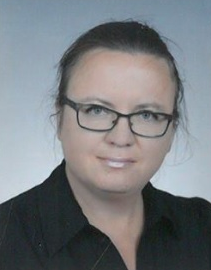
Ukraine’s Deputy Prime Minister and Minister for the Occupied Territories Iryna Wereszczuk gave an interview to the Rzeczpospolita newspaper, in which she appealed: “Let’s not make historical mistakes, because together we must resist Russia. We’ll deal with the rest later”. The problem, however, is that such appeals should be addressed to Ukrainian politicians, not Polish ones, who, together with the entire Polish nation, supported the struggling Ukraine.
Anyway, the Deputy Prime Minister herself admits that this help was great. “First of all, I am not tired of thanking Poland, we have plenty to thank Poles for. Let’s not forget about the role of Poland and Poles, especially in the first days of the war. No one has to tell me this, I saw it with my own eyes” – Deputy Prime Minister Wereszczuk said. “It will remain in our memory for a long time, it will become part of our common history” – she adds. “It is also worth remembering that the Russians want to divide us, because their empire has been betting on quarreling Poles with Ukrainians for many years” – the Ukrainian politician emphasizes. The whole problem, however, is that while the Polish side really did everything it could to build bonds of friendship with Ukraine, the Ukrainian politicians, to put it mildly, were cold and sometimes even undisguised hostility. And although at the beginning of the war it seemed that Poland’s attitude towards Russian aggression would allow for the normalization of Polish-Ukrainian relations, it turned out that probably not necessarily.
A real shock was the summoning by the Ukrainian Ministry of Foreign Affairs of the Polish ambassador Bartosz Cichocki, who was the only diplomat who did not leave the fighting country (in the background there was a ban on importing Ukrainian grain to Poland). An even bigger one – the statement of President Volodymyr Zelensky’s adviser, Mykhailo Podolak, who said: “Poland is now our closest partner and friend – it will remain so until the end of the war. After the war, we will have competitive relations, we will compete for different markets. We will clearly take pro-Ukrainian positions, defend our interests”.
It seems that the intention of the Ukrainian Deputy Prime Minister was to soften the overtones caused by the above actions and declarations of Ukrainian politicians. The problem is that there was no clear declaration or promise in her statement. The words she addressed to Poles: “Let’s not make our mistakes in history, because together we must resist Russia. We’ll deal with the rest later” are nothing more than postponing bilateral problems ad calendas graecas. Meanwhile, Poles expect Ukrainians to stop the cult of criminals from the OUN-UPA, including Stepan Bandera, to enable the exhumation of Poles brutally murdered by Ukrainian nationalists and a dignified burial. It would also be worthwhile for the Ukrainian government to get rid of its claims to Poland, because it really hinders dialogue, and to respect the sovereign decisions of the Polish authorities on matters relating to the Polish economy.
It should be noted that Deputy Prime Minister Wereszczuk is right when she says that the Russians want to divide Poles and Ukrainians. It’s just that the Ukrainians make it easier for them by giving public places patrons from among the genocides of the Ukrainian Insurgent Army. At the same time, they make it easier for the Russians to create the image of a Ukrainian as a fascist in the West, because Banderism – as historians have said more than once – is a Ukrainian variety of Nazism. Fulfilling the expectations of the Polish side would therefore not only improve mutual relations, but also disarm the Russian propaganda.
Anna Wiejak
